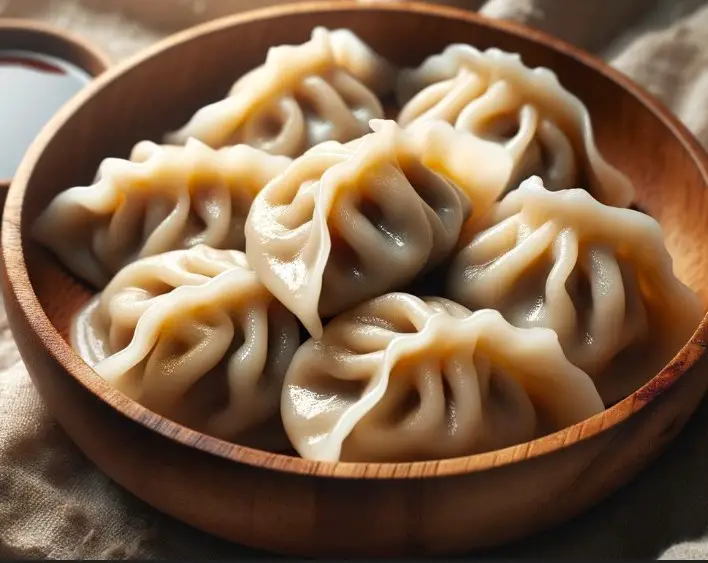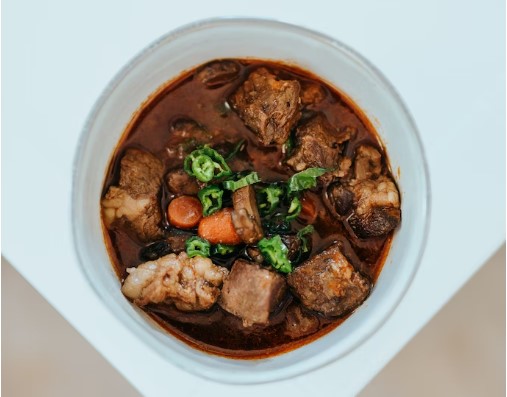Dumplings, a comforting culinary tradition, often face disintegration during cooking, affecting their appeal. This exploration aims to uncover the reasons behind this issue and propose solutions, embarking on a quest to master the art of crafting perfect, intact dumplings that elevate the dining experience.
Why Dumplings Fall Apart: Uncovering the Culprits
Dumplings embody a delicate balance of ingredients and techniques, and when this balance tips, they may fall apart, leaving us with a disheartened heart and a pot of soup with floating dough pieces. Let’s dissect the usual suspects behind this culinary debacle:
Insufficient Flour
Preventing Stickiness: The right amount of flour is crucial to prevent the dough from becoming too sticky, which could lead to the disintegration of dumplings during cooking.
Flour to Liquid Ratio: A common rule of thumb is to maintain a ratio of 1 cup of flour for every 2 cups of liquid. This ratio ensures that the dumplings have a firm structure to withstand the cooking process without falling apart2.
Inadequate Cooking Time
Failing to cook the dumplings for an adequate amount of time can result in them falling apart as they may not have had enough time to develop a firm structure.
Soft Dough
The softness of the dough can be a nemesis to the integrity of your dumplings. If the dough is too soft, the dumplings could dissolve into the cooking liquid, leading to a mushy mess.
Improper Cooking Techniques
Not adhering to the correct cooking techniques or rules can compromise the structure of your dumplings. This includes factors like the temperature of the water and the timing of adding dumplings to the pot.
Quality of Dumplings
If you’re opting for store-bought dumplings, the quality can significantly impact their ability to hold together. Poor quality dumplings may fall apart due to inferior ingredients or processing.
Moisture Seepage
The slow seepage of moisture from the cooking liquid into the dumplings can cause them to dissolve over time. Preventing this moisture seepage is crucial for maintaining the structural integrity of the dumplings.
Understanding these common pitfalls is the first step towards perfecting the art of dumpling-making. In the following section, we will delve into the actionable solutions to these issues, guiding you towards the path of making flawless dumplings that hold their shape and tantalize the taste buds.
Preventing The Downfall: Tips for Intact Dumplings
Perfection in dumpling-making is an attainable goal with the right guidance and a dash of patience. As we have dissected the common culprits behind the disintegration of dumplings, it’s now time to arm ourselves with solutions. Here are some actionable tips to ensure your dumplings remain intact and delightful:
Adequate Flouring
The essence of a good dumpling dough lies in its consistency. Ensure your dough isn’t too sticky by incorporating enough flour. A well-floured dough will not only hold its shape but also provide that desired tender bite.
Right Cooking Duration
Patience is a virtue, especially when it comes to cooking dumplings. Ensuring they are cooked for the right amount of time will help them develop a firm yet tender structure that holds together well.
Proper Dough Consistency
A firmer dough is resilient and can withstand the rigors of boiling or steaming. Achieve the right dough consistency by adjusting the flour and liquid ratio, and perhaps adding a touch more flour if the dough feels too soft.
Correct Cooking Techniques
Adhering to the correct cooking techniques is vital. This includes bringing the water to a rolling boil before adding the dumplings, and ensuring they are not overcrowded in the pot, which could lead to them sticking together and falling apart.
Quality Check
Whether you’re purchasing pre-made dumplings or making them from scratch, opting for high-quality, fresh ingredients can significantly impact the final outcome. Fresh ingredients not only taste better but also contribute to the overall structural integrity of the dumplings.
Preventing Moisture Seepage
To prevent moisture from seeping into your dumplings and causing them to fall apart, consider wrapping them tightly in plastic wrap and refrigerating them before cooking. This step can help to firm up the dough and prevent excessive moisture absorption during the cooking process.
With these practical tips in your culinary toolkit, you are well on your way to mastering the art of dumpling-making. Each step brings you closer to creating those perfect, intact dumplings that not only look appealing but also offer a comforting, flavorful bite that enchants the senses.





